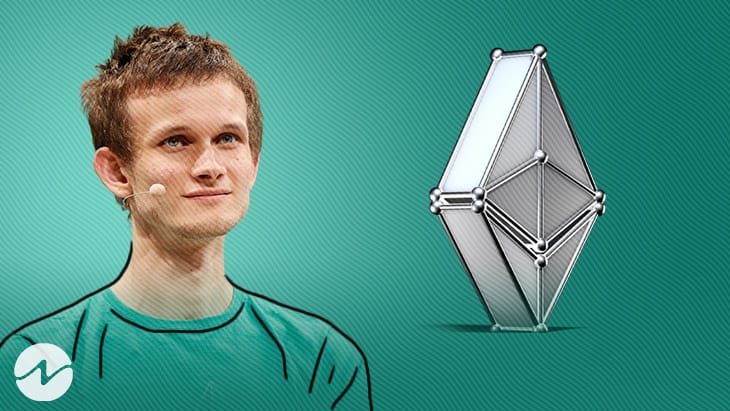- Buterin said that zk-EVMs will increase Ethereum’s transaction verification speed.
- By adding More Nodes, Polygon has already put its zk-EVMs into use.
Zero-knowledge Ethereum Virtual Machines (zk-EVMs) were advocated for use on the Ethereum mainnet by Vitalik Buterin. The Ethereum co-founder said on his blog that zk-EVMs will increase Ethereum’s transaction verification speed without compromising the network’s decentralization or security.
The Russian-Canadian developer claims that Ethereum’s multi-client philosophy, which allows users to operate nodes via a collaboratively maintained specification with many teams building implementations, is responsible for the platform’s continued security and decentralization.
The co-founder of Ethereum thinks that zk-EVMs may be used to alter the whole validation process in order to increase the network’s scalability. A zero-knowledge Ethereum Virtual Machine (zk-EVM) generates zero-knowledge proofs, which improves Ethereum’s scalability while still allowing for smart contract and app compatibility.
Should Not Be Reserved For Layer-2 Protocols
By adding More Nodes, Polygon has already put its zk-EVMs into use, which should make financial transactions faster. For efficient network execution, Polygon employs zk-EVM, which combines several transactions into a single proof.
Buterin argues that zk-EVMs shouldn’t be reserved for layer-2 protocols since they can be implemented on Ethereum’s L1 base layer. He claimed that the zk-EVMs will fix the verification issue at Ethereum’s foundation layer.
Buterin continued by outlining potential deployment strategies for zk-EVMs on the Ethereum network, along with the associated difficulties.
The Ethereum developer brought up the idea that the base layer might work as a clearinghouse for L2 protocols if everything were to be relocated there. This alternative, however, would raise transaction costs and render current L1-based protocols “economically nonviable,” as he put it.
The alternative would be to build a type 1 zk-EVM to validate L1 Ethereum block execution on the EVM. Buterin acknowledges that there would be difficulties with this approach, but is certain that they could be overcome.








